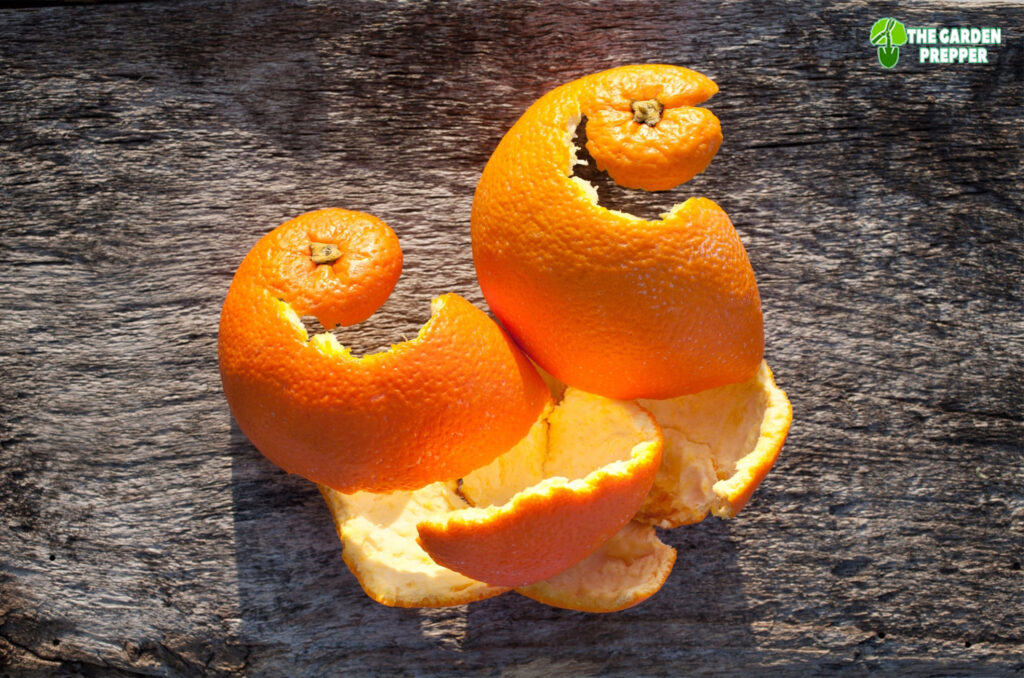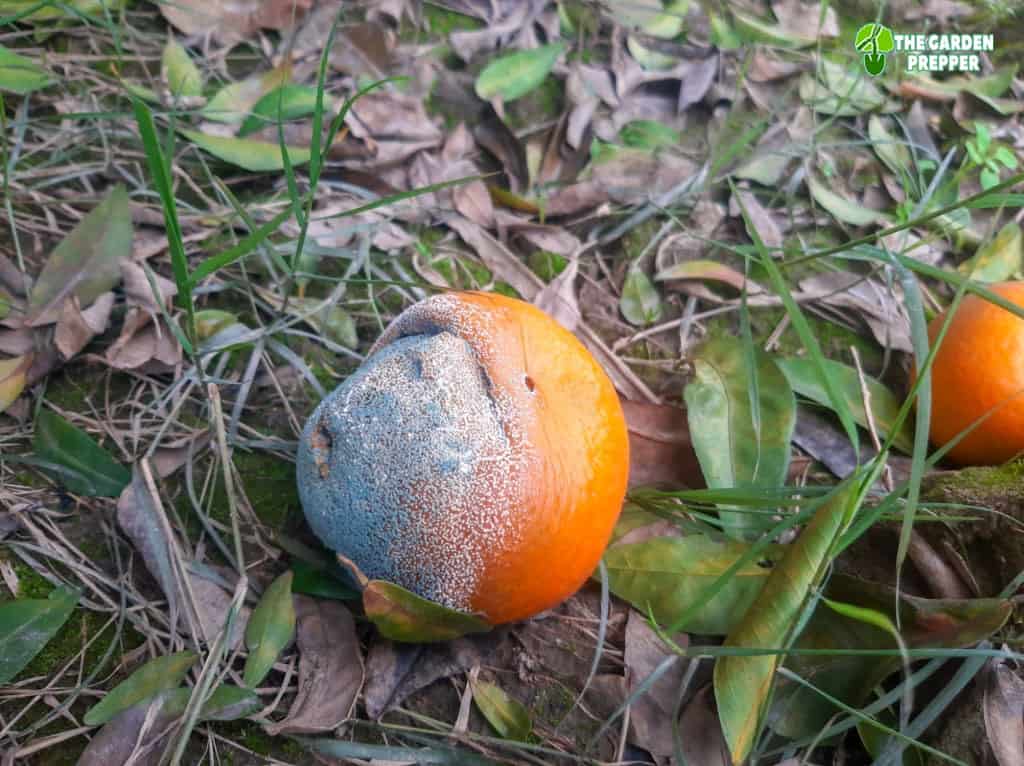A lot of people worry about compost and what the right mix is to keep their plants growing healthily. One thing many gardeners have recommended to use orange peels in compost, though others have also warned against it for other reasons.
But what is the truth, really? Furthermore, how do you place orange peels into the compost properly for it to be effective?
So if you are wondering, “can you put orange peels in compost?” Read on to find out!

Are Orange Peels Good For Compost?
In the past, gardeners have been against citrus peels for compost, including orange peels. Their claims were that citrus peels in compost may kill friendly bugs or because it was too much of a hassle to using them.
Fortunately, those claims are absolutely false! Citrus fruits do NOT hurt worms, though avoid using them in worm compost. They are best used for your garden!
Not only are orange peels okay to add to compost, but they hold a lot of benefits as well. Orange peels will make excellent compost material as long as you incorporate the peels properly.
However, do take note that if you add too much citrus fruits, it may increase the acidity of your heap, which sets of a disruption in the compost pile. Furthermore, it is true that citrus fruits would take longer to break down compared to other fruits. Only specific bacteria would chew on the chemicals found in the fruits’ skin, though it does happen.
Because of the slower break down, it may result in off-putting odors in the compost, which is easy to put up with. There are many more benefits of orange peels for compost, such as:
- Citrus peels have strong smells that scavenger animals don’t like, so it can repel them away from your garden. They can keep aphids away when used as an organic pesticide, along with dogs and cats that are curious and love exploring your garden and plants.
- When your orange peels break down, they add nitrogen, phosphorous, and potassium to the compost, which are important nutrients for plants to grow well.
- Citrus fruits like orange peels would add acidity to soil, which is beneficial for plants that love acidic soil.
- They are organic and all-natural, without any chemicals that may harm plants. There are also so many ways you can use orange peels for the garden, so don’t throw them away!
Can You Put Orange Peels in Compost?
Now that you know the benefits, the answer now is obvious: YES, you can put orange peels in compost! You are actually able to compost all types of citrus fruits, and not just oranges.
Clementine, grapefruits, lemons, limes, satsumas, you name it! Simply peel the peels, pulp, and rinds to the compost pile, making them ideal compost for those who love having these fruits in their breakfast smoothies and juices.
What if your citrus peels are moldy?
Not to worry, as they can still be added to your compost, and may even be better than fresh orange peels. This is because the peels are beginning to break down, making it easier to incorporate to the compost. Just make sure that your compost pile is properly maintained and hot enough so it can kill the mold spores form your peels.

Furthermore, take care when handling moldy peels, as it’s a wet waste material. To prevent negative effects, use bulking agents like shredded cardboard and wood chips to offset the moisture content.
To speed up the decomposing process, add moldy peels to the center of the compost, on top of dry leaves, then cover it with grass or paper. More heat will generate in the center, which breaks down the moldy peels.
Other tips to compost with orange peels
Here are some extra tips you can follow for more success with orange peels in the garden:
- Make sure to add orange peels in smaller pieces, cutting or trimming them so it quickens the decomposing process. When using larger peels, it slows down the decomposition rate, as it takes longer for bacteria to break the peels and chemicals down.
- Mix equal ratios of brown and green materials, including vegetable scraps, grass clippings with brown materials to add more ventilation and lessen the moisture buildup that causes compost to smell bad.
- Did you know that you can also use orange peels as insect repellants, organic pesticides, or even to freshen your compost? You can either rub orange peels on your skin to ward away insects, or mix it with boiling water to spray on those pesky garden pests.
- Be sure to keep your compost pile (with orange peels) in a compost bin where there is enough direct sunlight and ventilation.
Wrapping It Up
When it comes to putting orange peels in compost, it’s actually pretty beneficial, provided that you do it correctly. And if you’re wondering about the disadvantages people claim it has, you’ll find that there are more benefits to offer. Such natural compost will help keep your garden growing well.
I hope you found insight on how you can use orange peels as compost and why they are beneficial for the garden. So follow the tips and learn how to make better compost with natural ingredients now! Happy gardening!
